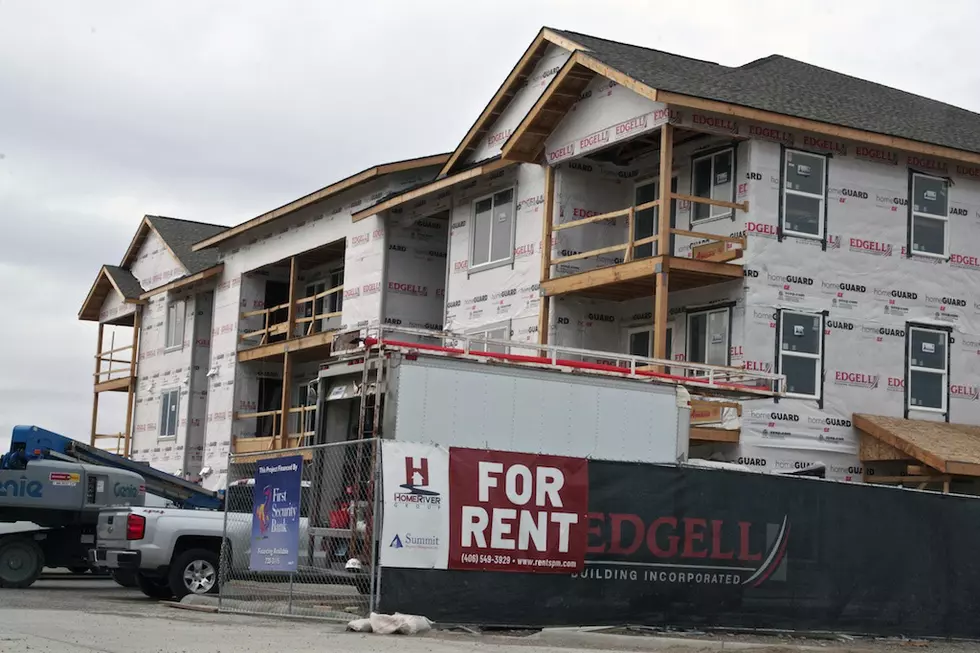
City taxes: ‘They’ll have to go to their savings account’
Martin Kidston
(Missoula Current) Calling the budget “very lean,” Mayor Jordan Hess on Monday night said his FY '24 budget reflected the values of Missoula and maintained his stance that Montana's tax system, not local spending, was driving an increase in taxes.
But the increase in local taxes has become an annual event and it has prompted those who pay – both homeowners and renters – to call on local officials to cut spending, set aside pet programs, and run a leaner operation until the state revamps its tax system, if it ever does.
The later remains the battle cry of local Democrats, though for years it has failed to result in any changes by the Republican supermajority in the Legislature. Taxes are soaring as a result and the stalemate may be reaching a breaking point.
But local officials are still calling on lawmakers to revamp the state's “broken” tax system sooner than later.
“Our property-tax system in the state of Montana is fundamentally broken,” Hess said. “It's based on an economy that doesn't exist anymore. It's the framework, unfortunately, we have to fund local government. Our property values are soaring and we have 3.5 million tourists in the city annually. We're continually trying to wedge a square peg into a round hole. It's problematic and it's reflected in this budget.”
Hess said this year's budget reflects the “values of Missoula.” As proposed, it invests in a second homeless shelter at a cost of nearly $2 million, funnels millions of dollars to the Affordable Housing Trust Fund, pays for the Mobile Support Team and Crisis Intervention Team, and funds new city positions to pad the social safety net.
The budget also touches on the city's efforts toward code reform to streamline development. It pays to update the parks plan and looks to bolster infrastructure. New impact fees will also bring in more revenue than needed this fiscal year, several council members noted.
“We continue to face fiscal challenges in the City of Missoula,” said Hess, who inherited the local funding situation from the previous administration. “Despite making significant headway last year, our ongoing expenditures continue to exceed our ongoing revenues. We're almost exclusively reliant on local property taxes while our funding needs continue to go up.”
But some have asked whether those “funding needs” need to go up, or could the city look for programs to cut. While every spending priority can be debated based upon one's priorities, certain departments cost more than others.
Police and fire lead the way but still, the fire department has been forced into a situation to ask taxpayers to fund a mill levy to generate $7 million in revenue to fund a new fire station and fire company. That will be in addition to any proposed tax increase in the city's FY '24 budget.
At the same time, the city is investing several millions of dollars into subsidized programs such as homelessness, shelter, crisis intervention and low-income housing. Voters last November said no to a levy that would have funded such programs, but they've been added to the budget regardless.
“There's a lot of complaining going on, on the radio, emails and phone calls. We need to hear how this affects everyone's lives,” said council member Sandra Vasecka. “I'm a renter and I understand that property taxes are a huge reason why my rent increases. I disagree with a lot of the spending my colleagues and the city spends its money on. I would appreciate some backup.”
Council member Gwen Jones added, “This will be my eighth budget. They get harder and harder every year because of the structural sideboards around our revenue. We get many, many requests to do so much more. We try and work on issues that are important to this community.”
As proposed, the city is proposing a 9.7% tax increase, which only reflects the city's portion of a property owner's tax bill. The county, local school district and state, along with voter-approved levies, also add to the increase.
The proposed budget cuts the number of mills levied by the city by more than 40, primarily as a result of the state's significant increase in appraisal values, which brings in more money and thus requires fewer mills. But while the city is decreasing its mills, the state is not, and that could also have a significant impact on one's tax bill.
As written, the city's budget provides $6.7 million in new revenue for FY '24, bringing its total tax-supported revenue to $111 million dollars.
Those who spoke on Monday questioned city officials' mention of the cost of police and fire while neglecting to note the cost of social services, homelessness, and parks and recreation.
“A lot of the people who are paying the taxes are going to go to their savings account. They put those savings there by earning money at a rate a lot less than what you're paying,” said Robert Dunlap, who also spoke last year during the FY '23 tax increase. “I don't believe we should be in the daycare business. I don't believe we should be in the float business.”
Additional FY24 Budget Stores
City to consider $2M in funding requests for homelessness (missoulacurrent.com)
2024 Budget: Development and Planning seeks $1.5M in new requests (missoulacurrent.com)
City's budget hinges on state's final tax numbers, coming Monday (missoulacurrent.com)
2024 Budget: Missoula fire reiterates need for new station (missoulacurrent.com)
MPD budget requests include digital evidence, crisis and wellness (missoulacurrent.com)
Mayor: 'We will see tax increases this year' (missoulacurrent.com)
Hess releases FY24 executive budget, details funding priorities (missoulacurrent.com)
Missoula budget presentations hint at new requests for FY24 (missoulacurrent.com)
